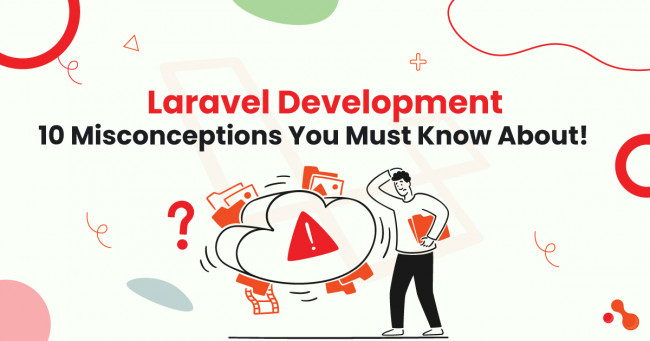Data privacy has become a critical concern for both individuals and organizations. With the rise of technological advancements and the increasing use of data in various sectors, including NPF recruitment, safeguarding personal information has become imperative. This article aims to explore the role of data privacy in recruitment and compliance, highlighting its significance, challenges, and best practices.

1. Importance of Data Privacy in Recruitment
In the recruitment process, organizations collect and process a vast amount of personal data from job applicants. This data includes resumes, contact information, educational qualifications, work experience, and sometimes even sensitive information like criminal records or medical history. Maintaining data privacy is essential for several reasons:
- a) Trust and Reputation: Organizations that prioritize data privacy build trust and enhance their reputation among job seekers. Respecting individuals' privacy rights helps establish a positive employer brand.
- b) Legal and Ethical Obligations: Privacy laws and regulations, such as the General Data Protection Regulation (GDPR) in the European Union, impose legal obligations on organizations to protect personal data. Adhering to these regulations ensures compliance and prevents legal consequences.
- c) Minimizing Data Breach Risks: Personal data collected during the recruitment process can be a valuable target for cybercriminals. By implementing strong data privacy measures, organizations reduce the risk of data breaches and protect both applicants and the organization itself from potential harm.
2. Challenges in Maintaining Data Privacy in Recruitment
While ensuring data privacy is crucial, it presents several challenges specific to the recruitment process. These challenges include:
- a) Consent and Transparency: Organizations must obtain explicit consent from job applicants to collect, process, and retain their personal data. It is essential to provide transparent information about how the data will be used and shared, ensuring applicants are fully informed and have control over their information.
- b) Data Storage and Retention: Organizations need to establish secure systems and protocols to store applicant data and ensure proper retention and disposal. They should only retain data for as long as necessary and ensure it is adequately protected from unauthorized access.
- c) Third-Party Data Processors: Many organizations use third-party recruitment platforms or services that process applicant data on their behalf. It is crucial to assess the privacy practices of these processors and ensure they comply with relevant data protection laws.
- d) International Hiring: Recruitment processes often involve cross-border data transfers when hiring candidates from different countries. Organizations must ensure that such transfers comply with data protection regulations and implement appropriate safeguards, such as standard contractual clauses or binding corporate rules.
3. Best Practices for Ensuring Data Privacy in Recruitment
To overcome the challenges and maintain data privacy in the recruitment process, organizations should consider implementing the following best practices:
- a) Privacy-by-Design Approach: Embedding privacy principles and practices from the initial design stage of recruitment systems helps ensure data protection is integrated throughout the process.
- b) Data Minimization: Collect only the necessary data required for the recruitment process. Avoid gathering excessive or unnecessary information that may increase privacy risks.
- c) Security Measures: Implement robust technical and organizational security measures to protect applicant data. This includes encryption, access controls, regular security audits, and employee training on data privacy.
- d) Privacy Policies and Notices: Provide clear and concise privacy policies and notices that inform applicants about the purpose of data collection, processing, and retention practices. Make these policies easily accessible to applicants.
- e) Consent Management: Obtain explicit and informed consent from applicants before collecting and processing their personal data. Offer options for applicants to withdraw their consent or modify their data when needed.
- f) Regular Audits and Assessments: Conduct regular privacy audits and assessments to identify and address any vulnerabilities in the recruitment process. This includes reviewing the data privacy practices of third-party processors.
- g) Employee Training and Awareness: Educate employees involved in the recruitment process about data privacy principles, best practices, and their role in protecting applicant data.
Regular training sessions can help raise awareness of privacy risks and ensure that employees handle personal information responsibly. Encourage a culture of privacy within the organization by emphasizing the importance of data privacy and promoting adherence to privacy policies and procedures.
4. Legal Compliance
Data privacy regulations, such as the General Data Protection Regulation (GDPR) in Europe or the California Consumer Privacy Act (CCPA) in the United States, impose strict requirements on organizations regarding the collection, storage, and processing of personal data. Compliance with these regulations is crucial to avoid legal repercussions, fines, or reputational damage.
5. Consent and Transparency
Organizations must obtain informed consent from job applicants before collecting their personal data. Applicants should be informed about the purpose of data collection, how their data will be processed, and who will have access to it. Transparent privacy policies and clear communication ensure that individuals are aware of their rights and can make informed decisions about sharing their personal information.
6. Data Minimization
Organizations should only collect and retain the minimum necessary personal data required for the recruitment process. Unnecessary or excessive data collection increases privacy risks and may infringe on individuals' rights. Data minimization principles help ensure that only relevant information is collected and processed.
7. Security Measures
Organizations must implement robust security measures to protect the personal data they collect during the recruitment process. This includes technical safeguards such as encryption, secure storage, access controls, and regular security audits. Adequate measures help prevent unauthorized access, data breaches, or accidental disclosures that could compromise individuals' privacy.
8. Applicant Rights
Data privacy regulations grant individuals specific rights, such as the right to access, rectify, or delete their personal data. Organizations must establish procedures to handle these requests promptly and efficiently. Respecting these rights builds trust with applicants and demonstrates a commitment to privacy and data protection.
9. Third-Party Data Processors
Recruitment processes often involve third-party service providers, such as applicant tracking systems or background check providers. When engaging these processors, organizations must ensure they have appropriate data protection measures in place. Contracts and agreements should clearly outline the responsibilities and obligations of all parties regarding data privacy and security.
10. Retention and Data Disposal
Personal data collected during the recruitment process should only be retained for as long as necessary. Once the purpose for which the data was collected has been fulfilled, it should be securely disposed of in accordance with applicable data protection regulations. Organizations should establish policies and procedures for data retention and disposal to ensure compliance.
Conclusion
Data privacy is a critical aspect of the recruitment process, ensuring the protection of applicants' personal information and compliance with legal obligations. By prioritizing data privacy, organizations can build trust, enhance their reputation, and minimize the risks associated with data breaches. Implementing best practices such as privacy-by-design approaches, data minimization, and robust security measures is essential for maintaining data privacy in recruitment. Ultimately, a commitment to data privacy fosters a respectful and responsible recruitment environment, benefiting both organizations and job seekers alike.
















